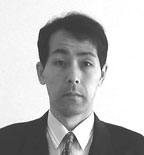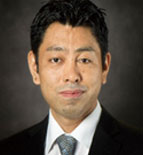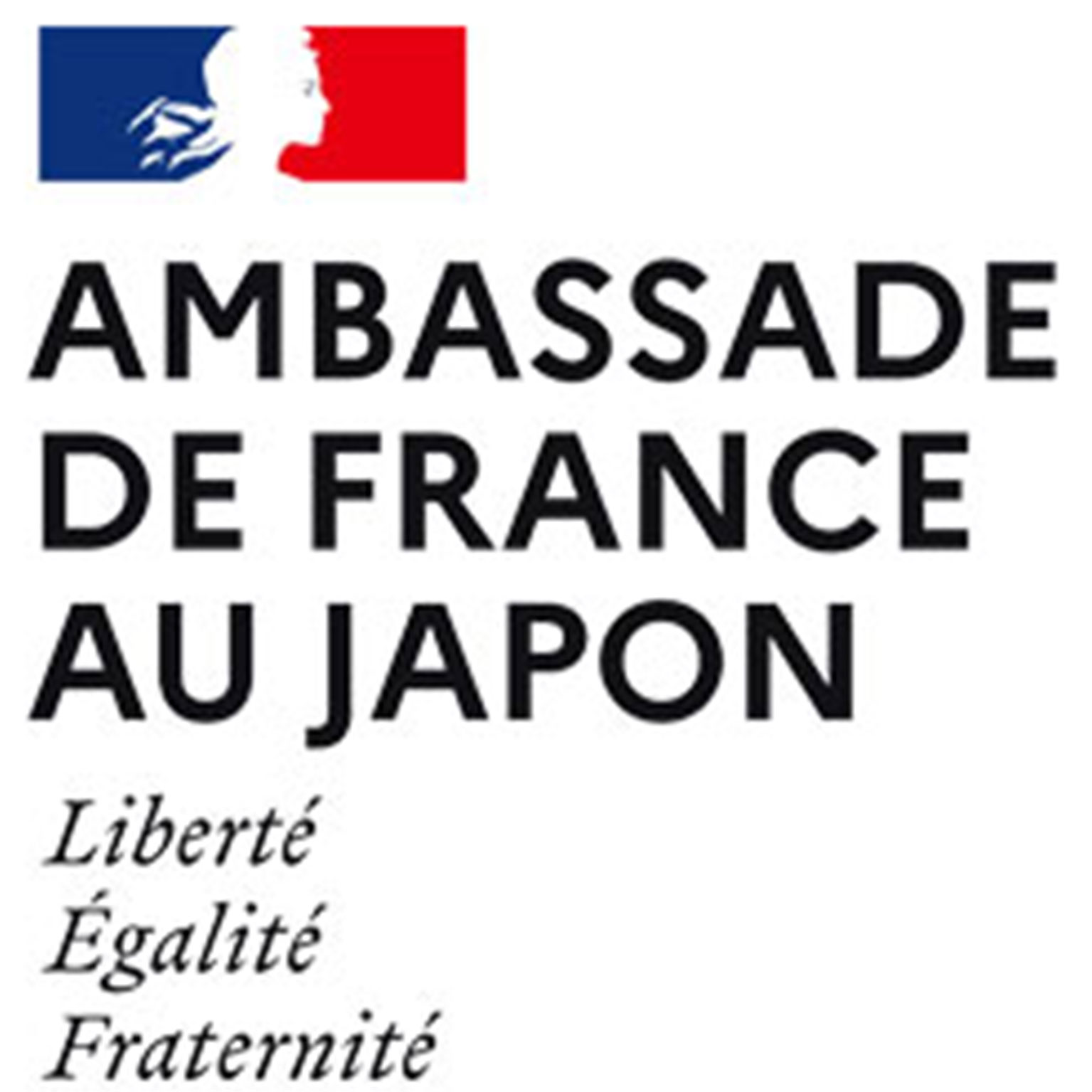- ホーム
- Laureates and Ceremony of Kiyoko Goto and Paul Bourdarie Scientific Prize
- Ceremony
- The 8th (2019) award ceremony—Cancelled
Ceremony
The 8th (2019) award ceremony—Cancelled
In consideration of the recent outbreak of COVID-19, Kiyoko Goto and Paul Bourdarie Cancer Foundation has decided to cancel the annual award ceremony and reception that was to be held on June 10, 2020 at the official residence of the French Ambassador to Japan. We would like to express our sincere gratitude for your understanding.
| Title | Kiyoko and Paul Bourdarie-Goto Scientific Prize |
|---|---|
| Laureate |
 Masahito SHIMOJO, Ph.D. |
| Specially Appointed Associate Professor, Graduate School of Pharmaceutical Sciences, Osaka University | |
| Paper | A gapmer antisense oligonucleotide targeting SRRM4 is a novel therapeutic medicine for lung cancer (Scientific Reports volume 9, Article number: 7618 (2019)) |
| Reason for selection (Dr. Jun NAKAJIMA, Chairman of the Advisory Committee) |
Dr. Shimojo and colleagues studied on small cell lung cancer (SCLC) and found that Ser/Arg repetitive matrix 4 (SRRM4), a splicing activator and a novel splicing activator of tumor suppressor REST, is abnormally expressed at high levels in SCLC. They screened an effective gapmer antisense oligonucleotide targeting SRRM4 in vitro and they found that repressed SRRM4 synthesis leading to a tumor reduction in a lung cancer mouse model. They also analyzed miRNA microarray and found that the miR-4516 is abnormally increased in exosomes in the blood of SCLC patients. Their findings is expected to lead to development of an SRRM4-targeted antisense oligonucleotide targeting drug. |
| Message from the Laureate |
First of all, I would like to express sincere thanks for the patients, co-authors, and many other researchers, my parents and family for their cooperation and supports. A few years ago, the news that a young children had developed lung cancer in China led me to study cancer. It has been pointed out that lung cancer is caused by air pollution such as PM2.5 and smoking. Children develop lung cancer and have a hard life, and there are many cases in which parents get cancer. In addition to the illness, the children and parents feel anxious about their future. That’s why I started this research with the hope that it would bring a bright light. We have reported for the first time in the world that the therapeutic target SRRM4 is abnormally expressed in small cell lung cancer and that targeting this molecule can induce cancer cell death. SRRM4 is also thought to be expressed in malignant refractory prostate and breast cancer, and SRRM4 ASO we have developed is expected to be used as a therapeutic for these. At first, the research that I started with a doctoral graduate student has progressed more than expected with the cooperation of many people, including venture companies. Recently, after the results have been featured in newspaper, I talked to many patients and their families and realized that many people are looking forward to new medical treatments. Antisense nucleic acids (SRRM4 ASO) under development have effectively reduced tumor size in animal studies. In order to use it for medical treatment, its safety and efficacy must be carefully verified. Osaka University Graduate School of Pharmaceutical Sciences have been studying nucleic acid medicine technologies that are effective and safer, with the aim of putting them into clinical application. In recent years, nucleic acid medicine has been launched as a new modality, but there is no cure for cancer yet. In the future, we will continue to develop effective therapeutics with fewer side effects. In order to increase drug efficacy and reduce side effects, it is necessary to select patients who we can expect the effects of therapeutic agents. For this purpose, we are also developing companion diagnostics that analyze miRNAs in blood with minimally invasiveness. The spread of new Coronavirus disease (COVID-19) has made the world a very difficult situation. "Even though there is a diagnostic method, there is no cure yet." This is where many people are concerned. It takes a lot of time and development costs before being approved as a therapeutic medicine. With the cooperation of the government and pharmaceutical companies, we would like to deliver the results of this research to the medical field as soon as possible, in order to relieve the concerns of patients who are feeling painful and their families. I would like to move forward so that I can realize the “Dream and Hope on that day” that I started this research. Again I am deeply pleased and honored to receive this prestigious award. |
| Title | Kiyoko and Paul Bourdarie-Goto Scientific Prize -Special Award |
|---|---|
| Laureate |
 Yujin KUDO, M.D., Ph.D. |
| Assistant Professor, Department of Thoracic Surgery, Tokyo Medical University | |
| Paper | Suppressed immune microenvironment and repertoire in brain metastases from patients with resected non small cell lung cancer (Annals of Oncology, 2019 Sep 1;30(9):1521-1530) |
| Reason for selection (Dr. Jun NAKAJIMA, Chairman of the Advisory Committee) |
Dr. Kudo and his colleagues studied on the tumor immune microenvironment of non-small lung cancer with brain metastasis with immune profiling and sequencing analysis of paired primary tumors and brain metastases from the patients. They found that inhibition of dendritic cell maturation, Th1 function and other immune cells in microenvironment of brain metastasis. These findings will be an aid of immunotherapy strategies for brain metastasis of NSCLC. |
| Message from the Laureate | Our study demonstrated translational research related with mechanism of tumor immune microenvironment in brain metastases form lung cancer, which suggested that unique immune oncology (IO) treatment might be promising for the brain metastases. Many patients with lung cancer develop brain metastases not only at their initial diagnosis, but also during their course, so that the brain metastasis was one of poor prognostic factors. Most oncologists or researchers focused on effectiveness of several molecular targeted agents for the brain metastases, however, there are few reports which show effectiveness of IO treatment for the brain metastases. This project illustrated highly reliable result which our group, including collaborated specialists in MD Anderson Cancer Center, sufficiently discussed, and I am confident that my submitted article should be contributed to developing treatment for lung cancer. Both my principle investigator (PI), Professor Wistuba, and I planned the whole design of this project. I involved all procedures with many collaborators’ help. The data analysis was also performed by bioinformaticians, immunologist, and me, and we discussed the analyzed data many times to conclude our result. Our study is the first report which tumor immune microenvironment (TIME) of the brain metastases was assessed by using multiple molecular technologies and comprehensive analysis. In this study, we interrogated the TIME of resected brain metastases and paired NSCLCs by expression profiling and sequencing, in an effort to help guide immunotherapeutic strategies, especially tumor associated macrophage (TAM) inhibitors, for NSCLC brain metastases. We believe that our study should contribute to develop the next generation IO therapies for the brain metastases. |
Ceremony
-

The 13th Kiyoko Goto and Paul Bourdarie Scientific Prize Award Ceremony
The 13th Kiyoko Goto and Paul Bourdarie Scientific Prize Award Ceremony
-

The 12th Kiyoko Goto and Paul Bourdarie Scientific Prize Award Ceremony
The 12th Kiyoko Goto and Paul Bourdarie Scientific Prize Award Ceremony
-

The 11th Kiyoko Goto and Paul Bourdarie Scientific Prize Award Ceremony
The 11th Kiyoko Goto and Paul Bourdarie Scientific Prize Award Ceremony
-

The 10th (2021) award ceremony—Cancelled
The 10th (2021) award ceremony---Cancelled
-

The 9th (2020) award ceremony—Cancelled
The 9th (2020) award ceremony---Cancelled
-

The 8th (2019) award ceremony—Cancelled
The 8th (2019) award ceremony---Cancelled
-

Report on 7th (2018) award ceremony
Report on 7th (2018) award ceremony
-

Report on the 6th (2017) award ceremony
Report on the 6th (2017) award ceremony
-

Report on the 5th (2016) award ceremony
Report on the 5th (2016) award ceremony



